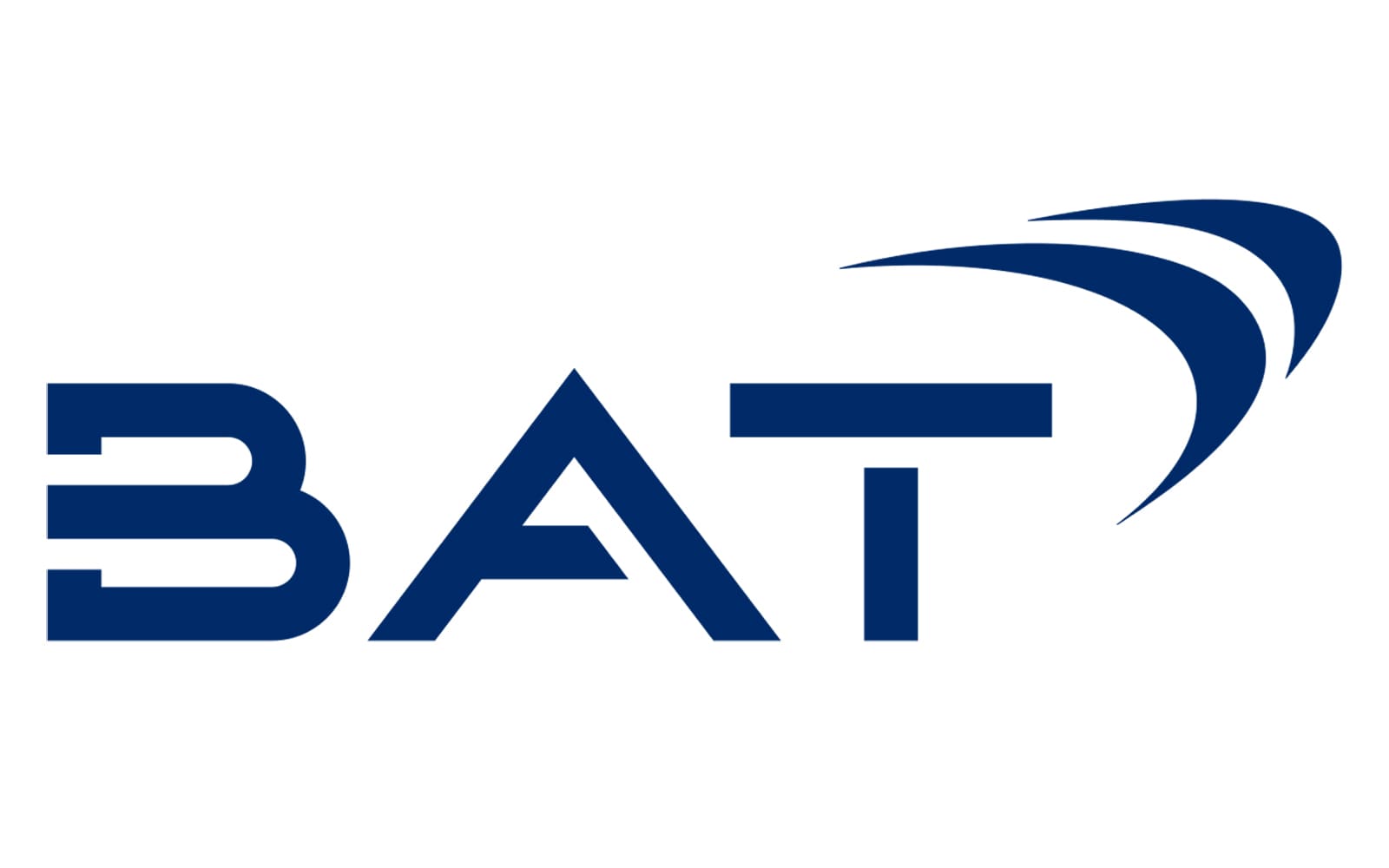Wells Fargo Maintains "Equal-Weight" Rating on British American Tobacco (NYSE:BTI)

- British American Tobacco aims for a smokeless product portfolio by 2035, focusing on non-combustible nicotine products.
- BTI offers an attractive 8% dividend yield with a conservative payout ratio of 60%, appealing to income-focused investors.
- Despite underperforming in stock price growth, BTI is enhancing shareholder value through strategic debt reduction and share buybacks, targeting 6-7% annual EPS growth.
On January 31, 2025, Wells Fargo reaffirmed its "Equal-Weight" rating for British American Tobacco (NYSE:BTI), suggesting investors hold the stock. At the time, BTI's stock price was $39.70. British American Tobacco, a major player in the consumer staples sector, is known for its diverse product range, including combustibles, oral products, heated tobacco, and vapes.
Despite the market's high valuation, BTI stands out due to its stable growth and reasonable valuation, as highlighted by Seeking Alpha. The company aims to transition to a fully smokeless portfolio by 2035, focusing on non-combustible nicotine products. This strategic shift is designed to sustain its financial performance amidst declining traditional smoking rates.
BTI offers an attractive 8% dividend yield, supported by a conservative payout ratio of 60%. This ensures stable and growing dividends, appealing to income-focused investors. Despite a 12% stock price decline over five years, BTI's dividends have consistently outpaced inflation, providing reliable returns.
The company is also enhancing shareholder value through strategic debt reduction and share buybacks. These initiatives are expected to drive annual earnings per share (EPS) growth of 6-7%. However, BTI's stock performance has lagged behind the broader market and its peers over the past decade, raising questions about its long-term prospects.
Currently, BTI's stock is priced at $39.80, showing a slight increase of 0.29%. The stock has fluctuated between $39.55 and $39.835 today, with the latter marking its highest price in the past year. With a market capitalization of approximately $87.6 billion and a trading volume of 1,064,857 shares, BTI remains a significant player in the market.
| Symbol | Price | %chg |
|---|---|---|
| HMSP.JK | 660 | -1.52 |
| GGRM.JK | 10850 | -0.92 |
| 033780.KS | 136800 | 1.24 |
| RMBA.JK | 306 | 0 |

British American Tobacco (NYSE:BTI) Earnings Report Analysis
- Earnings per Share (EPS) of $2.14, slightly below the estimated $2.19.
- Reaffirmed confidence in achieving the upper range of its 2025 revenue growth guidance, projected to be between 1% and 2%.
- Valuation metrics indicate a significant market value with a P/E ratio of 29.13, price-to-sales ratio of 3.48, and enterprise value to sales ratio of 4.70.
British American Tobacco (NYSE:BTI) is a leading global tobacco company known for its wide range of products, including cigarettes, tobacco, and nicotine products. The company operates in a highly competitive industry, with major competitors like Philip Morris International and Altria Group. BTI's financial performance and strategic decisions are closely watched by investors and analysts.
On August 1, 2025, BTI reported its earnings before the market opened. The company achieved an earnings per share (EPS) of $2.14, slightly below the estimated EPS of $2.19. Despite this, BTI remains optimistic about its future performance. The company reaffirmed its confidence in achieving the upper range of its 2025 revenue growth guidance, projected to be between 1% and 2% at constant rates, as highlighted by WSJ.
BTI's actual revenue for the period was approximately $15.97 billion, falling short of the estimated $16.22 billion. However, the company's valuation metrics provide a deeper understanding of its market position. With a price-to-earnings (P/E) ratio of 29.13, the market values BTI's earnings significantly. The price-to-sales ratio of 3.48 and enterprise value to sales ratio of 4.70 further reflect the company's market value relative to its sales.
The company's financial health is also evident in its cash flow efficiency. BTI's enterprise value to operating cash flow ratio is approximately 12.01, indicating how efficiently the company generates cash from its operations. Additionally, the earnings yield of 3.43% offers investors a perspective on the return on investment, being the inverse of the P/E ratio.
BTI's debt-to-equity ratio of 0.74 suggests a moderate level of debt relative to equity, indicating a balanced approach to financing. However, the current ratio of 0.76 highlights the company's ability to cover short-term liabilities with short-term assets, which is an important consideration for assessing liquidity.

British American Tobacco's Financial Performance and Market Position
- British American Tobacco p.l.c. (NYSE:BTI) reported earnings per share (EPS) of $2.44 and revenue of approximately $17.74 billion, meeting market expectations.
- The company's resilience is evident from a 1.3% increase in revenue in 2024, despite facing industry challenges such as increased taxes.
- BTI's share price saw an 8% drop, but the company remains optimistic about growth, with financial metrics indicating solid market valuation and financial health.
British American Tobacco p.l.c. (NYSE:BTI) is a leading global tobacco company known for its diverse product portfolio, including traditional cigarettes and newer smokeless products. The company operates in a highly competitive industry, facing rivals like Philip Morris International and Altria Group. BTI's focus on innovation and expansion into new categories helps it navigate industry challenges.
On February 13, 2025, BTI reported its earnings, achieving an earnings per share (EPS) of $2.44, aligning with market expectations. The company's revenue also matched estimates, reaching approximately $17.74 billion. This performance reflects BTI's ability to meet financial targets despite facing industry headwinds, such as increased taxes in key markets like Bangladesh and Australia.
In 2024, BTI demonstrated resilience with a 1.3% increase in revenue, reaching £27.2 billion, driven by the Total Smokeless segment. However, challenges in 2025, including a 2% decline in adjusted profit from operations due to tax hikes, highlight the company's ongoing struggles. Despite these hurdles, the New Categories segment, particularly Modern Oral, shows promising growth potential.
BTI's share price experienced an 8% drop, despite slightly better-than-expected revenue and earnings. The company's annual revenue decreased by 5.2% to £25.9 billion, influenced by the sale of its businesses in Russia and Belarus and currency headwinds. However, organic revenue saw a modest increase of 1.3%, indicating underlying business strength.
Looking forward, BTI anticipates a 2% decline in global tobacco industry volume in 2025. Despite this, the company remains optimistic about growth in its operations. BTI's financial metrics, such as a price-to-sales ratio of 2.59 and a debt-to-equity ratio of 0.75, reflect its market valuation and financial health. The planned £900 million share buy-back and increased dividend further demonstrate BTI's commitment to shareholder returns.

British American Tobacco's Financial Performance and Market Position
- British American Tobacco p.l.c. (NYSE:BTI) reported earnings per share (EPS) of $2.44 and revenue of approximately $17.74 billion, meeting market expectations.
- The company's resilience is evident from a 1.3% increase in revenue in 2024, despite facing industry challenges such as increased taxes.
- BTI's share price saw an 8% drop, but the company remains optimistic about growth, with financial metrics indicating solid market valuation and financial health.
British American Tobacco p.l.c. (NYSE:BTI) is a leading global tobacco company known for its diverse product portfolio, including traditional cigarettes and newer smokeless products. The company operates in a highly competitive industry, facing rivals like Philip Morris International and Altria Group. BTI's focus on innovation and expansion into new categories helps it navigate industry challenges.
On February 13, 2025, BTI reported its earnings, achieving an earnings per share (EPS) of $2.44, aligning with market expectations. The company's revenue also matched estimates, reaching approximately $17.74 billion. This performance reflects BTI's ability to meet financial targets despite facing industry headwinds, such as increased taxes in key markets like Bangladesh and Australia.
In 2024, BTI demonstrated resilience with a 1.3% increase in revenue, reaching £27.2 billion, driven by the Total Smokeless segment. However, challenges in 2025, including a 2% decline in adjusted profit from operations due to tax hikes, highlight the company's ongoing struggles. Despite these hurdles, the New Categories segment, particularly Modern Oral, shows promising growth potential.
BTI's share price experienced an 8% drop, despite slightly better-than-expected revenue and earnings. The company's annual revenue decreased by 5.2% to £25.9 billion, influenced by the sale of its businesses in Russia and Belarus and currency headwinds. However, organic revenue saw a modest increase of 1.3%, indicating underlying business strength.
Looking forward, BTI anticipates a 2% decline in global tobacco industry volume in 2025. Despite this, the company remains optimistic about growth in its operations. BTI's financial metrics, such as a price-to-sales ratio of 2.59 and a debt-to-equity ratio of 0.75, reflect its market valuation and financial health. The planned £900 million share buy-back and increased dividend further demonstrate BTI's commitment to shareholder returns.

Wells Fargo Maintains "Equal-Weight" Rating on British American Tobacco (NYSE:BTI)
- British American Tobacco aims for a smokeless product portfolio by 2035, focusing on non-combustible nicotine products.
- BTI offers an attractive 8% dividend yield with a conservative payout ratio of 60%, appealing to income-focused investors.
- Despite underperforming in stock price growth, BTI is enhancing shareholder value through strategic debt reduction and share buybacks, targeting 6-7% annual EPS growth.
On January 31, 2025, Wells Fargo reaffirmed its "Equal-Weight" rating for British American Tobacco (NYSE:BTI), suggesting investors hold the stock. At the time, BTI's stock price was $39.70. British American Tobacco, a major player in the consumer staples sector, is known for its diverse product range, including combustibles, oral products, heated tobacco, and vapes.
Despite the market's high valuation, BTI stands out due to its stable growth and reasonable valuation, as highlighted by Seeking Alpha. The company aims to transition to a fully smokeless portfolio by 2035, focusing on non-combustible nicotine products. This strategic shift is designed to sustain its financial performance amidst declining traditional smoking rates.
BTI offers an attractive 8% dividend yield, supported by a conservative payout ratio of 60%. This ensures stable and growing dividends, appealing to income-focused investors. Despite a 12% stock price decline over five years, BTI's dividends have consistently outpaced inflation, providing reliable returns.
The company is also enhancing shareholder value through strategic debt reduction and share buybacks. These initiatives are expected to drive annual earnings per share (EPS) growth of 6-7%. However, BTI's stock performance has lagged behind the broader market and its peers over the past decade, raising questions about its long-term prospects.
Currently, BTI's stock is priced at $39.80, showing a slight increase of 0.29%. The stock has fluctuated between $39.55 and $39.835 today, with the latter marking its highest price in the past year. With a market capitalization of approximately $87.6 billion and a trading volume of 1,064,857 shares, BTI remains a significant player in the market.







